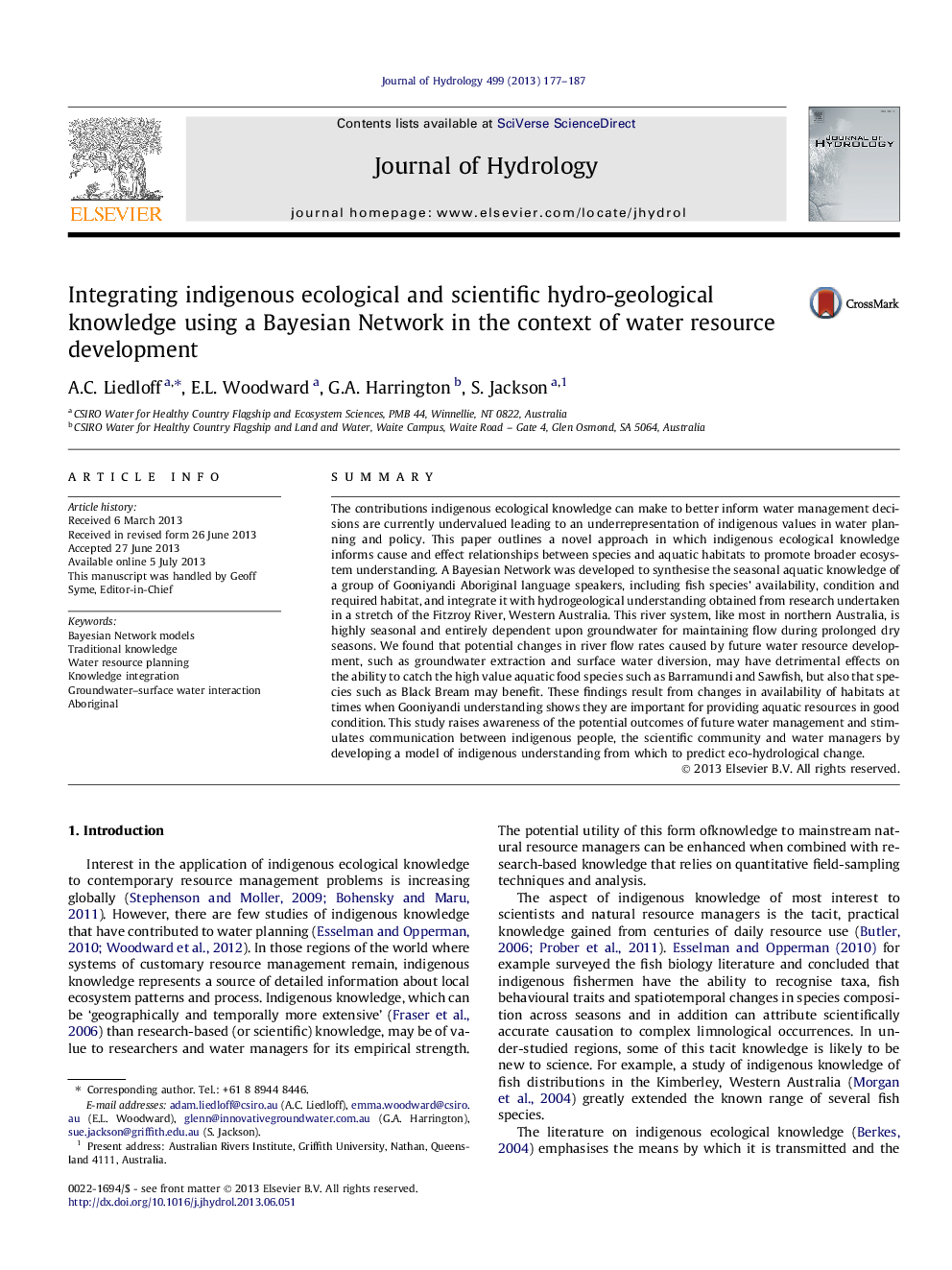| کد مقاله | کد نشریه | سال انتشار | مقاله انگلیسی | نسخه تمام متن |
|---|---|---|---|---|
| 6413625 | 1629949 | 2013 | 11 صفحه PDF | دانلود رایگان |
- We model indigenous, ecological knowledge of valuable aquatic species.
- The indigenous hydro-ecological understanding is combined with scientific hydro-geological knowledge.
- We predict a negative effect of both ground water and surface water extraction on most fish species.
- The model will assist understanding and collaboration with indigenous people.
SummaryThe contributions indigenous ecological knowledge can make to better inform water management decisions are currently undervalued leading to an underrepresentation of indigenous values in water planning and policy. This paper outlines a novel approach in which indigenous ecological knowledge informs cause and effect relationships between species and aquatic habitats to promote broader ecosystem understanding. A Bayesian Network was developed to synthesise the seasonal aquatic knowledge of a group of Gooniyandi Aboriginal language speakers, including fish species' availability, condition and required habitat, and integrate it with hydrogeological understanding obtained from research undertaken in a stretch of the Fitzroy River, Western Australia. This river system, like most in northern Australia, is highly seasonal and entirely dependent upon groundwater for maintaining flow during prolonged dry seasons. We found that potential changes in river flow rates caused by future water resource development, such as groundwater extraction and surface water diversion, may have detrimental effects on the ability to catch the high value aquatic food species such as Barramundi and Sawfish, but also that species such as Black Bream may benefit. These findings result from changes in availability of habitats at times when Gooniyandi understanding shows they are important for providing aquatic resources in good condition. This study raises awareness of the potential outcomes of future water management and stimulates communication between indigenous people, the scientific community and water managers by developing a model of indigenous understanding from which to predict eco-hydrological change.
Journal: Journal of Hydrology - Volume 499, 30 August 2013, Pages 177-187
